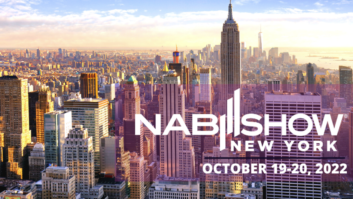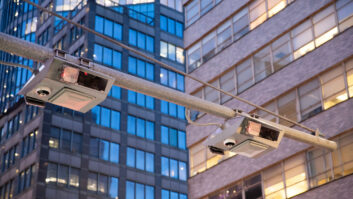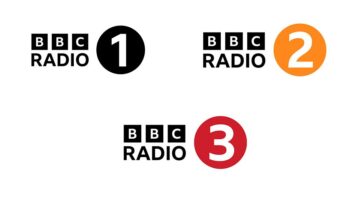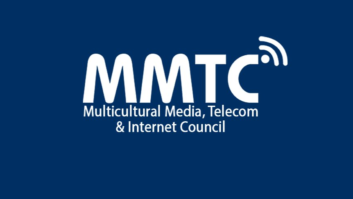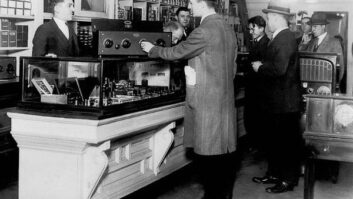Radio World supports efforts to save our radio and audio heritage, including the work of the Radio Preservation Task Force,a project of the Library of Congress.
Here is one in a series of guest commentaries about the topic.

Jeremy Wade Morris.
Jeremy Morris is an assistant professor in the Department of Communication Arts at the University of Wisconsin-Madison.
In January 2014, Adam Curry sent a quick tweet out to his 40,000-plus followers with a modest request: “Looking for a full archive of ‘Daily Source Code’ mp3s.” Not just your average media user looking for bootlegged files, Adam Curry was one of podcasting’s first breakout stars in the early 2000s. He was trying to track down one of the first widely popular podcasts, the “Daily Source Code.” But his request was certainly odd; after all Curry was actually the host and producer of the “Daily Source Code,” which ran from 2004 to 2013 (over 860 episodes!).
As Curry lamented on his website: “For a number of [stupid and careless] reasons, I am not in posession of most of these.” [sic]
For those familiar with radio history, this story is probably less surprising. Much of radio’s history has been lost to vagaries of time, be it through the willful ignorance of companies looking to “preserve” only that which could be “monetized,” or the unintentional negligence of hosts, producers and engineers without the foresight, budgets or means to realize that the radio they were making and broadcasting would shape culture for decades to come — culture that media historians, scholars and hobbyists would later want to analyze, research, teach and reference.
SHOCKINGLY VULNERABLE
You’d think that a format as ubiquitous, available and digitally compressed as podcasts wouldn’t face the same kind of risks as old radio tape reels or transcription discs. Most podcasts are freely available online and they take up relatively few megabytes, which makes it easy to store a lot of them. Podcasting is just over 10 years old and while there are a lot of them — iTunes lists over 300,000 unique podcasts and close to 8 million individual episodes in over 100 languages — it’s not as vast and unmanageable as radio’s much longer and more ephemeral history.
The Radio Preservation Task Force, for example, is working hard to try and preserve what remains of radio’s past, but estimates that close to 75 percent of historical radio recordings in the U.S. has already been lost, destroyed or is otherwise inaudible.
Similarly, the explosion in amateur and expert cultural production that podcasts represent is shockingly vulnerable; podcast feeds frequently end abruptly, cease to be maintained, or become housed in proprietary and closed database systems, like the iTunes store, which are difficult to search through with any depth or rigor.
The issue of copyright looms large and, as the popularity of podcasts grows, the increasing professionalization and commercialization of the medium also threatens to streamline podcast production, limiting some of its potentially democratic diversity and general accessibility (think paywalls and exclusive content).
There are also countless cases, like Adam Curry’s, where independent podcasters simply don’t realize that just by virtue of the fact they are taking part in a format’s infancy, they are also making history. What today’s podcasters are producing will have value in the future, if not for its content, for what it tells us about radio and audio’s longer history, about who has the right to communicate and by what means. If we’re not making efforts to preserve podcasts now, we’ll likely find ourselves in the same sonic conundrum many radio historians find themselves in: writing, researching and thinking about a past they can’t fully hear.
NO COMPREHENSIVE STRATEGY
How do podcasts differ, sonically and aesthetically, from radio? What new voices and perspectives do podcasts make audible and which ones do they silence? In what ways are the traditional conventions of the broadcasting industry shaping this new outlet? How are producers and consumers reimagining the very idea of broadcasting in light of the advent of podcasts?

The author is a co-creator of PodcastRE, a searchable, researchable database of podcasts to preserve podcasting’s history (http://podcastre.org/). This is a screen of results for “love and radio.”
Each new podcast offers its own answer to these important questions; but without a comprehensive archive and database to help search and research, we’re barely able to begin answering them.
The Internet Archive — as with so much other historical digital (and pre-digital) media — has a substantial audio database, part of which is devoted to podcasts. The folks at Audiosear.ch are also making a dent in making podcasts more analyzable thanks to their highly useful interactive transcripts. Various libraries are also beginning to bolster their digital audio collections.
PodDb provides a rich database of metadata about podcasts hosts, producers and other production credits. Also, I’m engaged with a small but devoted team in an effort to build a site we’re calling PodcastRE (short for Podcast Research) to preserve podcasts and make them more researchable for audio scholars and enthusiasts. But beyond that, there exists no real hub that allows for both the archiving and the analysis of this emerging form of audio culture.
If shows like “Serial,” “Welcome to Night Vale,” “2 Dope Queens” and others have prompted critics to proclaim we’re in a golden age of audio, you’d think we’d have a more comprehensive strategy for saving these new sounds than optimistically assuming podcast producers are keeping proper backup copies of their shows, and that those copies will last five, 10, 50 years into the future.
Shortly after his tweet for help, Curry posted an update on his website. It turns out that a “super friend of the show” had a copy of the entire “Daily Source Code” archive and was uploading it and making to available to fans through Bit Torrent Sync. As with much of what we have left of radio’s golden age, fans and enthusiasts were helping rebuild the missing archive. As a result, one of podcasting’s first big shows wasn’t lost to time.
The same can’t be said for many other feeds that have already disappeared and the many more that might if we don’t make preserving podcasts a priority.





